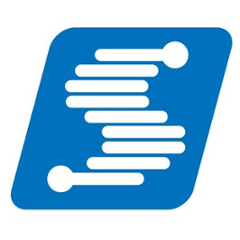micronaut-jupyter
A Micronaut configuration that integrates your app with an existing Jupyter installation.
Features
Micronaut kernel
A special Micronaut kernel is provided to Jupyter that can be used to run notebooks. This kernel can:
- Execute Groovy code
- Import classes on your Micronaut app's classpath
- Access Micronaut beans
- Use Micronaut Data repositories
- Use GORM Data Services and dynamic finders
- Access functionality available to the BeakerX Groovy kernel
- Note: This requires that the
beakerxPython package (and possibly other Jupyter packages) be installed on the system separately.
- Note: This requires that the
Setup
Add Build Dependency (Gradle)
Ensure the following repositories are added to your gradle build:
repositories {
mavenCentral()
maven { url 'https://jitpack.io' }
}
Add the following dependency to your gradle build:
dependencies {
implementation "ai.stainless:micronaut-jupyter:0.2.4"
}
Configure your Jupyter Kernels Directory
Ensure that your app can write to a directory where Jupyter will search for kernels.
Option 1 - Easiest (Possible security vulnerability!)
The default directory is /usr/local/share/jupyter/kernels, so the following is sufficient:
chmod 777 /usr/local/share/jupyter/kernels
Option 2 - May be More Secure
Create a separate directory, say at /opt/jupyter-alt/kernels, that your app can write to. Then, configure Jupyter to search this directory using JUPYTER_PATH. Lastly, add the following config to your application.yml:
jupyter:
kernel:
location: /opt/jupyter-alt/kernels
Usage
When your app starts up, this configuration will make any necessary configurations to Jupyter. Once both your app and Jupyter are running, login to Jupyter to start using the features.
See the /examples directory for example apps that use this configuration along with sample Jupyter notebooks that take advantage of the available features.
Development
Branches
The master branch contains the latest production release. The develop branch contains the latest stable build. It is recommended that most PRs be submitted to the develop branch in order to ensure that they are based on the most recent version of the code. Most PRs that are submitted to master will be rebased onto develop. Exceptions to this would include things like critical bugfixes that need to be pushed ahead of the next planned release.
Testing
Docker Required
In order to run the tests, you must have Docker installed on your dev environment. The tests use a library called Testcontainers, so you'll need to meet its system requirements (see link) in order to run the tests. The tests run in Travis CI out of the box; on a local machine, installing Docker Desktop should be sufficient.
Running the Tests
Run all the tests:
./gradlew test
Run integration and unit tests separately
./gradlew integrationTest
./gradlew unitTest
Gradle's --tests option won't apply to subtasks, so use -Ptests to filter the tests:
./gradlew test -Ptests=*BasicGroovy*
./gradlew integrationTest -Ptests=*Finder*
Building
./gradlew build
Planned Features
- Import classes on app classpath in Jupyter script
- Access GORM methods in Jupyter scripts
- Access beans in Jupyter script
- Ability to add custom methods and properties to scope of Jupyter script
- Access GORM Data Services from Jupyter script
- Access Micronaut Data repositories from Jupyter script
